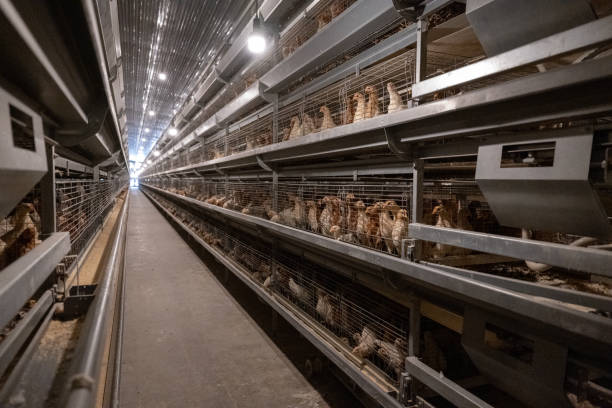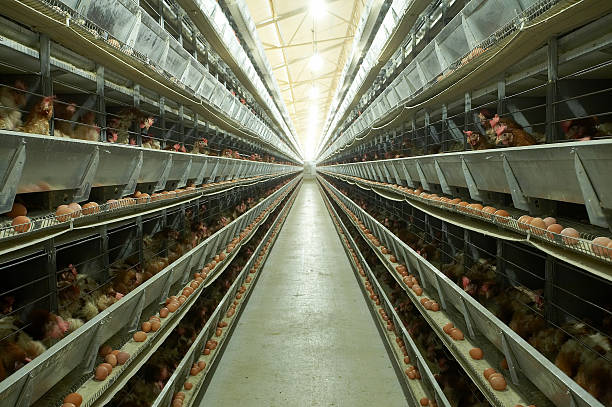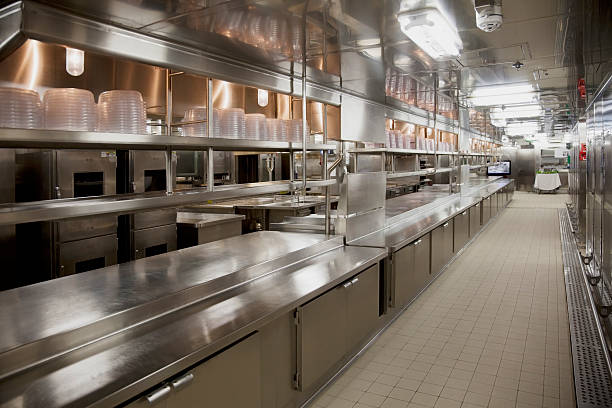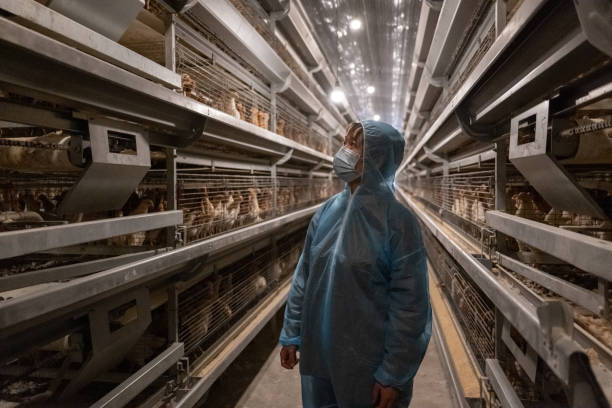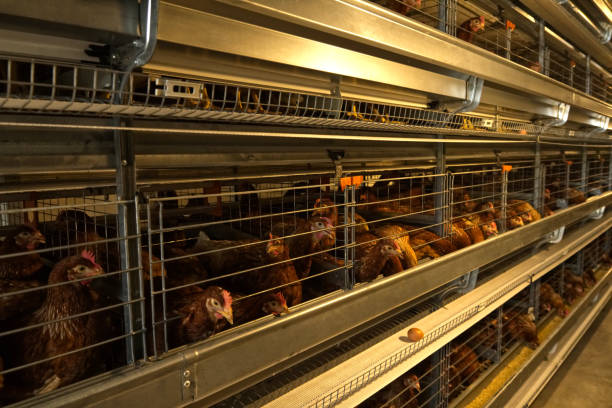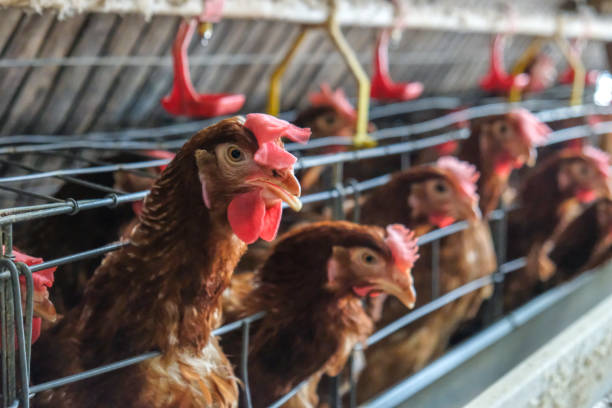Battery Cage Systems for Poultry Farming in Africa: A Comprehensive Guide
Battery Cage Systems for Poultry Farming in Africa: A Comprehensive Guide
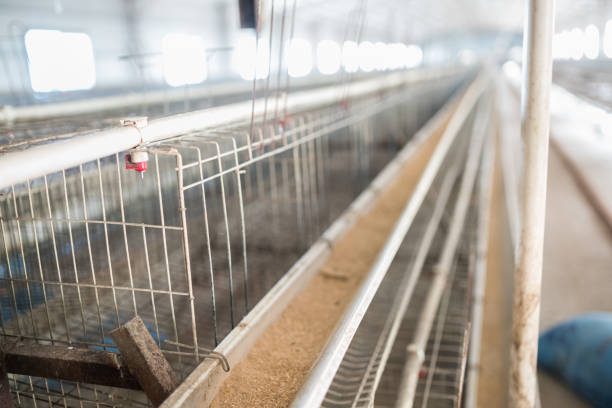
Poultry farming in Africa is undergoing a dramatic transformation, driven by the need to meet the growing demand for eggs and meat. As traditional methods struggle to keep pace, farmers are increasingly turning to modern techniques, including battery cage systems. These systems offer the potential for increased efficiency, improved hygiene, and greater control over the rearing environment. However, the adoption of battery cage systems also raises important questions about animal welfare, environmental impact, and economic sustainability. This comprehensive guide aims to provide African poultry farmers with the information they need to make informed decisions about implementing battery cage systems.
What are Battery Cage Systems?
Battery cage systems are a type of housing for poultry, primarily egg-laying hens, where birds are kept in small, wire mesh cages arranged in rows and tiers. These cages typically provide limited space for movement and are equipped with automatic feeding, watering, and egg collection systems. The design aims to maximize the number of birds that can be housed in a given space, streamlining management and boosting productivity.
Advantages of Battery Cage Systems
Several compelling advantages contribute to the popularity of battery cage systems in commercial poultry farming:
Increased Productivity: Battery cages allow for a higher stocking density, meaning more hens can be housed in the same area compared to free-range or deep litter systems. This leads to a greater overall egg production per unit of space.
Improved Hygiene: The wire mesh floors of battery cages allow manure to fall through, reducing contact between the birds and their waste. This minimizes the risk of disease outbreaks and improves overall hygiene within the poultry house.
Reduced Labor Costs: Automated feeding, watering, and egg collection systems significantly reduce the labor required for daily management. This frees up farmers to focus on other aspects of their operations, such as marketing and financial planning.
Better Environmental Control: Battery cage systems are often housed in enclosed buildings, providing a more controlled environment in terms of temperature, humidity, and lighting. This can optimize bird health and productivity, especially in regions with harsh climates.
Reduced Predation: Confining hens in cages protects them from predators, such as foxes, birds of prey, and other animals that can cause significant losses in free-range systems.
Improved Feed Conversion Ratio: With controlled feeding and reduced activity levels, hens in battery cages tend to have a better feed conversion ratio, meaning they require less feed to produce the same number of eggs. This can lead to significant cost savings over time.
Easier Monitoring and Management: The close confinement of birds in battery cages makes it easier for farmers to monitor their health and identify any potential problems early on. This allows for prompt intervention and reduces the risk of widespread disease.
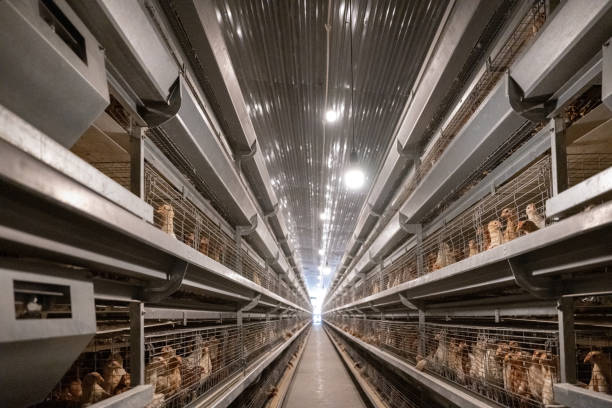
Disadvantages of Battery Cage Systems
Despite the advantages, battery cage systems have significant drawbacks:
Animal Welfare Concerns: The limited space and lack of environmental enrichment in battery cages restrict the natural behaviors of hens, such as perching, scratching, and dust bathing. This can lead to stress, frustration, and behavioral problems, such as feather pecking and cannibalism.
High Initial Investment: Setting up a battery cage system requires a significant initial investment in cages, buildings, and automated equipment. This can be a barrier to entry for small-scale farmers.
Environmental Impact: While the concentration of manure in battery cage systems can make it easier to manage, it also poses a risk of environmental pollution if not handled properly. The ammonia emissions from poultry houses can contribute to air pollution and acid rain.
Public Perception: There is growing public concern about the welfare of animals raised in battery cages. Consumers are increasingly demanding eggs from alternative production systems, such as free-range or organic farms.
Disease Susceptibility: While hygiene can be improved, the close proximity of birds in battery cages can also increase the risk of rapid disease spread if an outbreak occurs.
Bone Weakness: The lack of exercise in battery cages can lead to bone weakness and an increased risk of fractures, especially in older hens.
Limited Genetic Diversity: Battery cage systems often rely on a limited number of high-producing breeds, which can reduce genetic diversity and increase the vulnerability of the flock to disease and environmental changes.
Types of Battery Cage Systems
Several variations of battery cage systems are available, each with its own advantages and disadvantages:
Traditional Battery Cages: These are the most common type of battery cage, consisting of small, wire mesh cages arranged in rows and tiers. Each cage typically houses 3-8 hens.
Enriched Cages: Enriched cages are designed to provide hens with more space and environmental enrichment, such as perches, nesting areas, and scratching pads. These cages aim to address some of the animal welfare concerns associated with traditional battery cages.
A-Frame Cages: A-frame cages are arranged in an A-shape, with the feeding and watering systems located in the center. This design can improve ventilation and reduce the risk of manure contamination.
Flat Deck Cages: Flat deck cages are arranged in a single layer, making it easier to monitor and manage the birds. This design is often used in smaller-scale operations.
Considerations for Implementing Battery Cage Systems in Africa
Before investing in battery cage systems, African poultry farmers should carefully consider the following factors:
Climate: The climate in Africa can be challenging for poultry farming. Battery cage systems should be designed to provide adequate ventilation, cooling, and heating to maintain optimal bird health and productivity.
Feed Availability and Cost: Feed is a major expense in poultry farming. Farmers should ensure access to a reliable and affordable supply of high-quality feed.
Water Availability: Water is essential for poultry production. Farmers should have access to a clean and reliable water source.
Disease Management: Disease outbreaks can be devastating to poultry farms. Farmers should implement strict biosecurity measures and develop a comprehensive disease management plan.
Market Demand: Farmers should assess the demand for eggs and meat in their local market and choose a production system that meets consumer preferences.
Regulations: Farmers should be aware of any regulations related to poultry farming in their country or region, including animal welfare standards and environmental regulations.
Animal Welfare: Farmers should consider the ethical implications of raising animals in battery cages and explore alternative production systems that provide better welfare standards.
Investment Costs: Conduct a thorough cost-benefit analysis to understand the initial investment, operating costs, and potential returns of a battery cage system. Factor in the cost of cages, automated equipment, building modifications, and ongoing expenses like feed, water, and labor.
Training and Expertise: Ensure that farm staff receives adequate training on managing battery cage systems, including proper feeding techniques, health monitoring, and environmental control.
Waste Management: Develop a sustainable waste management plan to handle the manure produced by the battery cage system. This may involve composting, biogas production, or other methods to minimize environmental impact.
Alternatives to Battery Cage Systems
Given the animal welfare concerns associated with battery cage systems, African poultry farmers should explore alternative production systems, such as:
Free-Range Systems: Free-range systems allow hens to roam freely outdoors for a significant portion of the day. This provides them with the opportunity to engage in natural behaviors and improve their welfare.
Deep Litter Systems: Deep litter systems house hens in large, floor-based pens with a thick layer of bedding material, such as wood shavings or straw. This allows them to scratch, dust bathe, and exhibit other natural behaviors.
Barn Systems: Barn systems are similar to deep litter systems but typically house a larger number of hens in a more enclosed environment.
Organic Systems: Organic systems adhere to strict standards regarding animal welfare, feed inputs, and environmental management. These systems typically require lower stocking densities and prohibit the use of synthetic pesticides and antibiotics.
The Future of Battery Cage Systems in Africa
The future of battery cage systems in Africa is uncertain. As consumer awareness of animal welfare issues grows, there is increasing pressure on farmers to adopt more humane production methods. Some African countries are already considering or implementing regulations to phase out battery cages in favor of alternative systems.
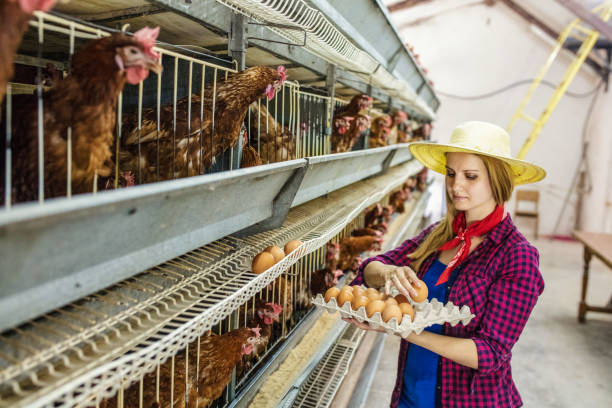
However, battery cage systems are likely to remain a significant part of the poultry industry in Africa for the foreseeable future due to their economic advantages and efficiency. The key will be to find a balance between maximizing productivity and ensuring acceptable animal welfare standards. This may involve adopting enriched cage systems or transitioning to alternative production systems over time.
Conclusion
Battery cage systems offer African poultry farmers the potential to increase productivity and efficiency. However, they also raise important concerns about animal welfare and environmental impact. Before investing in battery cage systems, farmers should carefully consider the advantages and disadvantages, explore alternative production systems, and develop a sustainable management plan that addresses both economic and ethical considerations. By making informed decisions and adopting best practices, African poultry farmers can contribute to a more sustainable and humane poultry industry. Furthermore, focusing on education and training for farmers on best practices within battery cage systems can help mitigate negative impacts and improve animal welfare to a certain extent. Partnering with agricultural extension services and animal welfare organizations can provide access to valuable resources and expertise. The key lies in balancing economic viability with ethical considerations, ensuring a responsible and sustainable approach to poultry farming in Africa.



